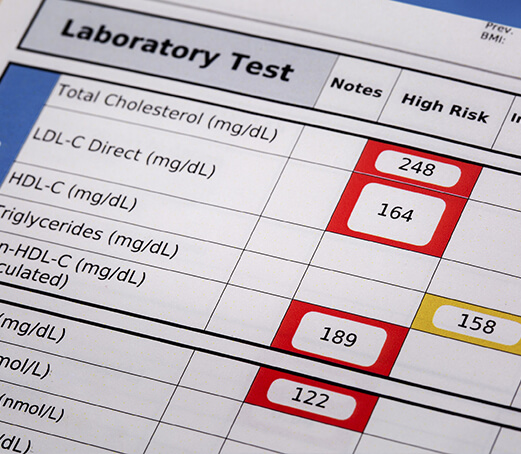Cholesterol is a waxy substance that’s found in the fats (lipids) in your blood. While your body needs cholesterol to continue building healthy cells, having high cholesterol can increase your risk of heart disease.
When you have high cholesterol, you may develop fatty deposits in your blood vessels. Eventually, these deposits make it difficult for enough blood to flow through your arteries. Your heart may not get as much oxygen-rich blood as it needs, which increases the risk of a heart attack. Decreased blood flow to your brain can cause a stroke.
High cholesterol can be inherited, but it’s often the result of unhealthy lifestyle choices, and thus preventable and treatable. A healthy diet, regular exercise and sometimes medication can go a long way toward reducing high cholesterol.
Factors that may increase your risk of high cholesterol include:
- Poor diet. Eating saturated fat, found in animal products, and trans fats, found in some commercially baked cookies and crackers, can raise your cholesterol level. Foods that are high in cholesterol, such as red meat and full-fat dairy products, will also increase your total cholesterol.
- Obesity. Having a body mass index (BMI) of 30 or greater puts you at risk of high cholesterol.
- Large waist circumference. Your risk increases if you are a man with a waist circumference of at least 40 inches (102 centimeters) or a woman with a waist circumference of at least 35 inches (89 centimeters).
- Lack of exercise. Exercise helps boost your body’s HDL, or “good,” cholesterol while increasing the size of the particles that make up your LDL, or “bad,” cholesterol, which makes it less harmful.
- Smoking. Cigarette smoking damages the walls of your blood vessels, making them likely to accumulate fatty deposits. Smoking may also lower your level of HDL, or “good,” cholesterol.
- Diabetes. High blood sugar contributes to higher LDL cholesterol and lower HDL cholesterol. High blood sugar also damages the lining of your arteries.
CLICK HERE to view or print a helpful educational brochure about Cholesterol.

